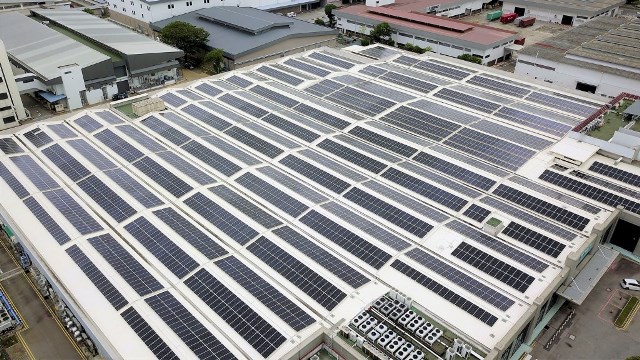Singtel announced a new solar energy installation at Bedok Data Centre as part of its environmental sustainability strategy to achieve net-zero emissions by 2050.
 The installation, which commenced operations in March, will generate some 2,059 MWh of clean energy per year and account for 10 percent of the data centre’s energy needs, the equivalent of powering 462 four-room flats per month.
The installation, which commenced operations in March, will generate some 2,059 MWh of clean energy per year and account for 10 percent of the data centre’s energy needs, the equivalent of powering 462 four-room flats per month.
“This project is an important step in our strategy to make the transition to a clean energy future,” Andrew Buay, vice president of Group Sustainability at Singtel said in a statement.
Among Singtel’s existing renewable energy installations, Bedok Data Centre is the largest generator of clean energy to date.
The 1.65 MWp solar energy installation on the data centre’s wide rooftop consists of 4,292 solar panels across an area of approximately 8,205 square metres, or the size of two football fields. This will help reduce carbon levels by 864 tons per year, which is the equivalent of planting 43,200 trees for the duration of the 13-year solar power purchase agreement (PPA), the first PPA Singtel has signed for Singapore.
It will contribute to Singtel’s current Science Based Target of 42 percent Scope 1 and 2 absolute carbon reductions across its Singapore and Australia operations by 2030.
All of Singtel’s data centres, including Bedok Data Centre, are green data centres certified to the SS 564 Green Data Centre Standard. SS 564 is a Singapore benchmark developed by the Green DC Standards Working Group, and defines processes to improve the energy efficiency and enhance the competitiveness of data centres.
Singtel has been investing in energy efficient technologies to reduce energy consumption in its operations. This includes undertaking cyclical replacement of chillers for infrastructure like data centres.
Singtel is also exploring the use of direct renewable energy for its infrastructure or larger scale projects in Singapore and Australia to reduce carbon emissions and meet its net-zero target.





